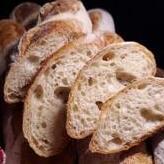-
Welcome to the eG Forums, a service of the eGullet Society for Culinary Arts & Letters. The Society is a 501(c)3 not-for-profit organization dedicated to the advancement of the culinary arts. These advertising-free forums are provided free of charge through donations from Society members. Anyone may read the forums, but to post you must create a free account.
Lemon/Lime/Citrus Curd: The Topic
-
Similar Content
-
- 19 replies
- 10,739 views
-
- 22 replies
- 9,487 views
-
- 21 replies
- 4,698 views
-
Arby's - The Topic 1 2 3
By Toliver,
- 71 replies
- 16,546 views
-
- 3,881 replies
- 661,654 views
-
-
Recently Browsing 0 members
- No registered users viewing this page.





Recommended Posts